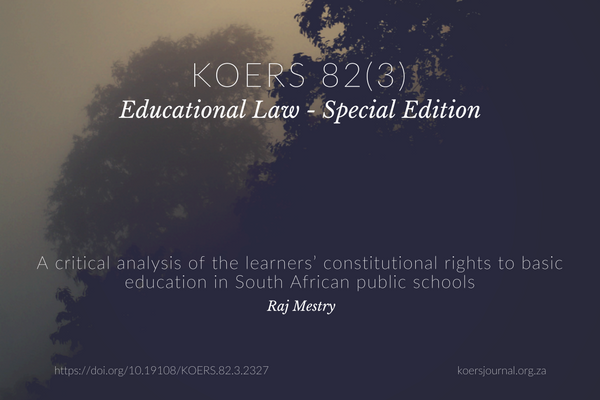Abstract
Globally, several countries propose to make primary education compulsory and freely available to all. Although there has been steady growth in learner enrolment in South African public schools since 1994, the socioeconomic status of parents, racial and religious discrimination, high cost of school fees and schools’ language policies have prevented poor learners from accessing basic education, especially in public schools located within affluent areas. This paper critically examines legislation and policies relating to children’s constitutional rights to education. The government’s mandate to redress past injustices and concentrate on social justice and equity in public education is hampered by the failure of many schools correctly interpreting or consistently applying legislation and regulations relating to learner admissions. It has been found that the admission policies drawn up by school governing bodies (SGB) covertly prevent poor learners from enrolling at affluent schools. Although school admissions have been contested in various court cases, governing bodies of affluent schools continue to practice unfairness in opening its doors to all children. To ensure that social justice and equity prevail in school education, the Department of Education should revise policies or amend existing legislation encouraging SGBs to provide learner access without any prejudice.

This work is licensed under a Creative Commons Attribution-NoDerivatives 4.0 International License.
Copyright (c) 2017 Raj Mestry


_31.png) https://doi.org/10.19108/KOERS.82.3.2327
https://doi.org/10.19108/KOERS.82.3.2327